By Gbenga Gbesan, veteran journalist, public affairs analyst
“It is necessary to recapitulate what the proponents of the same-faith, Muslim-Muslim ticket, are saying. A conspicuous argument is that it’s not unprecedented in Nigerian political history.”
When Patrick Carroll wrote the article titled “4 Differences between the Freedom Brand and the Freedom Philosophy,” he didn’t have Nigeria in mind. America was his focus. Carroll believed Americans have failed in properly understanding the real import of freedom. Carroll’s conception of freedom is like a coin with two sides. On one side is the freedom brand while freedom philosophy occupies the other. Americans, he argues, have been preoccupied more with the freedom brand as against the freedom philosophy. Four differences distinguish the latter from the former. First, freedom brand tends to be about preferences. On the other hand, “principle” is the root of freedom philosophy. Secondly, while freedom brand highlights more of what it is against, freedom philosophy states what is stands for. A third differentiating characteristic is that slogan is very common with freedom brand. Conversely, “substance” underpins freedom philosophy. Fourthly and finally, unlike freedom brand that merely recreates the past, freedom philosophy envisions tomorrow. In other words, while one looks to the past, the other eyes the future. Carroll believes America is a country flooded by the freedom brand. But that is not enough. For America to truly be a country of liberty that is at the heart of its founding, Americans, he reasoned, have to “learn the freedom philosophy and resolve to live it out.”
Put in the context of Nigeria, everything said can be transposed to the travails of democracy in the country. Working out a hypothesis and borrowing Carroll’s construct, we can, substituting freedom with democracy, say, that as passionate as Nigerians are about democracy, there is more of democracy brand than democracy philosophy in the country. The result is tasking Nigeria’s democratic experience with viability. Focusing on election that serves as one of the critical elements of democracy, how will the controversial “Muslim-Muslim ticket” stand in the face of Carroll’s adopted model of democracy brand vs democracy philosophy? In other words, which of the two typologies – democracy brand or democracy philosophy – does the choice satisfy? And as a rider, and most important of all, what import does the same faith, Muslim-Muslim ticket have for democracy in Nigeria?
A background to the problem. Ahead of the 2023 presidential election, the All Progressive Congress (APC) decided to field a duo of single-faith, Muslim-Muslim candidate for the presidency. Currently the ruling party in government, the political party was formed in 2013.
It was a coalition of four political parties with a sprinkling of a break-away faction from the then ruling party – the People’s Democratic Party (PDP). All of the party’s founding fathers and leaders were veterans in Nigerian politics. The initiators of the political merger included the incumbent President Muhammadu Buhari of the then Congress for Progressive Change (CPC) and also a former Nigerian head of state; Senator Bola Tinubu from the Action Congress of Nigeria (ACN), a two-term governor of Lagos State and one of the loud voices in the National Democratic Coalition (NADECO) that fought against the annulment of June 12, 1993 election; a former governor of Kano State, Mallam Ibrahim Shekarau of All Nigeria People’s Party (ANPP); and, Senator Annie Okonkwo who brought the All Progressives Grand Alliance (APGA) into the fold.
Twice, in 2015 and 2019, the party had selected presidential candidates. On both occasions, they produced a mixed Muslim/Christian joint candidate. For the 2023 election, however, the party chose differently. It had a same-faith, Muslim-Muslim joint candidate. The choice has ignited public debate on the propriety of the decision in view of the multi-religious nature of Nigeria and its departure from a religious sensibility norm that had seemed to be in place.
Arguments have surfaced however from the two sides of the debate. Some say it is right while others find it repulsive. The purpose here is to disambiguate the controversy through verifiable evidence so that there can be informed understanding of the decision. In other words, should the choice be turned into a hypothesis asking what does same-faith, Muslim-Muslim candidates connote for the evolving Nigerian democratic journey, what would the evidence say? Extending the inquiry a bit further, if the decision is put under the democracy brand or democracy philosophy crucible, what would the outcome be? And what is there to learn from this single faith, Muslim-Muslim ticket?
It is necessary to recapitulate what the proponents of the same-faith, Muslim-Muslim ticket, are saying. A conspicuous argument is that it’s not unprecedented in Nigerian political history. That that was the case during the June 12, 1993, presidential election that featured late Chief M. K O. Abiola and Mr. Babagana Kingibe. Abiola and Kingibe were both Muslims. This encumbered their joint candidature with no burden. So why the hassle this time around? What the heck if the past was being recreated? Only bigots with myopic views would raise an eyebrow. Joined to this is the second normative argument that what ought to count is competence. Not religion. That religious identities of candidates should be immaterial. That Tinubu and Kashim Shettima had proven records; that they were stockpiled with experience to fight the terror groups hunting and haunting Nigerians, put food on their empty stomachs, and of course, lessen the unrelenting miseries that have so far been their living companions. Third and last, the same faith, Muslim-Muslim candidates’ protagonists argue that a northern Christian as a candidate pairing with the APC flag-bearer Senator Bola Tinubu won’t bring him good luck in the 2023 election. Election is about wining, why should the APC national leader ruin his chances with such an albatross?
Every country has its fault lines. These are issues or opinions strong enough and which have the potential of polarizing the country and its people. Elections, their outcomes, and other variables associated with them are notably some of our fault lines in Nigeria since independence. Indeed, ethnicity and religion have been notoriously two myth conceptions that have been ingrained into our elections. Luckily for Nigeria however, by a natural coincidence, there seems to have been evolved what can be described as “defensive democracy.” Defensive democracy means countries taking deliberate steps through laws and other means to limit certain freedoms, particularly in elections in order to prevent occurrences that have the potential of undermining democracy. Examples of “defensive democracy” measures are when some individuals and political parties are banned from contesting election as in the case of Israel, or the outlawing of organisations deemed to constitute a threat to democracy as in the case of the Communist Party in the then West Germany. A good analogy will be to have the Indigenous People of Biafra (IPOB) transforming into a political party and presenting its leader Nnamdi Kanu as its presidential candidate for the 2023 presidential election. Would it be a bigger or lesser uproar than the Muslim-Muslim ticket?
Nigeria, it appears, has been fortunate. A seemingly invincible hand seems to have been quietly at work assisting the country in implementing a form of “defensive democracy.” Perhaps because it – the defensive democracy – is not to our knowledge, we take it for granted. Nevertheless, taking it for granted is one thing, abusing the mechanism, however, is another ball game entirely. A good illustration of how this natural protective order is taken for granted can be seen from electoral laws of many countries. For example, there is what I call “coupling ticket,” that is, when a husband chooses the wife a running mate in the same election. This is a rare case to which countries electoral laws have addressed themselves to. The same about “consanguinity ticket,” a situation of brother and brother or brother and sister or sister and brother or sister and sister running together as joint candidates. Crossing of the boundary of such moral sensibility threshold is not what commonly occurs in the world. Even in authoritarian regimes it is an aberration that is rare.
It isn’t so in Daniel Ortega’s Nicaragua however. The Nicaraguan president suffered no moral qualms in picking his wife, the First Lady Rosario Murillo, as his vice presidential candidate during the 2016 election. Odd things make tongues wag and Ortega’s crossing of the moral sensibility boundary did exactly that. Nicaraguans condemned the duplet charging Ortega of attempting to turn the country into “a personal fiefdom.” The irony was that the same man who broke the protective moral sensibility shield of his country was to come up with an enactment intended to defend the “Nicaraguan democracy.” The broad law prohibited “traitors” from running for or holding public office. Nicaragua remains a broken country today, a development attributable to Ortega’s wanton destruction of its moral defensive fabric.
Moral sensibility has its equivalent too in religion. A country’s democracy can slip into chaos by snubbing religious sensibility. Crossing religious sensibility lines, particularly in a multi-religious society like Nigeria can incite similar adverse consequences. For Nigeria, however, prior to this time, the quiet work of the defensive democracy has seemingly made religious sensibility an inactive issue in our body politic. Like moral sensibility, we accord this religious sensibility passive recognition. We take it for granted. Religion can be toxic to politics if it becomes an issue framing the way choices are made in politics. It is this reason that has made the Tinubu/APC’s same-faith, Muslim-Muslim ticket not a good choice. Like the poisonous duplet of Ortega, Tinubu’s same-faith ticket is equally unwholesome to the climate of religious sensibility that has been prevailing so far in Nigeria. And the empirical evidence says so.
There are 36 states in the country with 19 in the north and 17 in the south. The states are divided into six geographical zones of equal number of three in the north and three in the south making at total of six. Between 1999 and 2019, there have been about 143 governors (comprising those elected directly, or those who have acted the position, or those who have succeeded an incumbent upon the death of the individual in office, and those who have acted as sole administrators upon impeachment of office holders).
Of the 143 governors, Muslims numbered 69 or 48 per cent while Christians accounted for 75 or 52 per cent. Seven states – four in the north and three in the south – contributed disproportionately to the high turnover rate witnessed among the governors. For instance, between 1999 and 2019 in Ekiti state, the governorship seat changed nine times, just like similar scenario played out in Plateau and Bayelsa states seven times respectively during this same period. Indeed, all the six geographical zones experienced evident volatility in governorship positions with removal of some governors before the expiration of their tenure, especially through the instrumentality of impeachment.
The data suggest however a higher prevalence rate of the volatility among the Christian governors. Sokoto remains the only state from 1999 – 2019 that has predominantly Muslim governors and which experienced the same high rate of frequency in the change of its leadership. The three states in the north – Adamawa, Kogi and Plateau states in the north – and the three in south – Anambra, Bayelsa and Ekiti – total the six states and predominantly with Christian governors to have experienced the highest turnover records in the governorship seats. Indeed, the six states’ tally was a collective figure of 45 governors between 1999 and 2019. This contributed in large measure to the overall total of governors who governed the 36 states of Nigeria within the 21-year period. This high rate of turnover in the number of governors also affected the metrics that have to do with their faith.
Dividing the country into north and south, how does the picture look regarding the Muslims and Christians’ governance of the country? The picture showed a near equal number; there has been 61 Muslim governors in the north and 60 Christians who have been governors in the south. The north in addition has had 14 Christian governors. The governors were from the six states of Adamawa, Benue, Kaduna, Kogi, Taraba, and Plateau. Coming to Muslim governors in the south, four of the 17 states in the south – Lagos, Oyo, Osun and Ogun – have produced eight Muslim governors at one time or the other. A significant point to note is that all the three zones in the north have witnessed a Christian governor. From the North-West, Kaduna state has had a Christian governor; two states from the North-East (Adamawa and Taraba), and three from the North-Central (Benue, Kogi and Plateau). Two states, in addition, have been governed consistently by Christian governors since 1999 in the north. The states are Benue and Plateau. Quiet evidently, all through the five cycles of elections that Nigeria has gone through, from 1999 to date, religion didn’t appear to have weighed substantially in the public space.
Political parties also seemed to have respect for religious sensibilities. They kept within the boundaries of religious sensibility despite their quest for power. Since 1999, for instance, 13 states in the north have been consistently governed by Muslims. The states are Bauchi, Borno, Gombe Jigawa, Kano, Kastina, Kebbi, Kwara, Nasarawa, Niger, Sokoto, Yobe and Zamfara. None of the parties that won elections in those states fielded a Christian candidate. The same about the 12 Southern states of Abia, Akwa Ibom Anambra, Bayelsa, Cross River, Delta, Ebonyi, Edo, Ekiti, Enugu, Imo and Rivers where all the governors have been Christians since civil rule began in 1999. In similar vein, no political party has seemed eager in any of the 12 states to cross the religious sensibility line by attempting to field a Muslim candidate for election.
Indeed, zealous as Nigerians are about religion, faith or creed has been of discountable significance in influencing people’s voting behaviour. Whether in the conservative states that have continuously produced governors of a single-faith orientation, or in the few liberal ones like Adamawa, Taraba, Kogi, Lagos, Ogun, Osun and Oyo, where governors have been of mixed-faith persuasions, it didn’t appear that the electorate were broadly concerned with the faith of candidates. Nigeria is a multi-religious country with no part or section not having the presence of Christianity, Islam and traditional worship. This dynamic of respecting religious sensibility has noiselessly served as a lubricant to Nigeria’s defensive democracy, assisting in the ordering of the country’s democratic evolutionary path noiselessly.
Is Senator Tinubu, the APC presidential candidate, aware of this dynamic that has kept Nigeria away from the contaminating influence of religion in its body politic? The facts would suggest the answer to be in the affirmative. Twice, Tinubu governed Lagos State, back-to-back from 1999 to 2007. The same number of times he changed his deputies. A Muslim, the replacements on both occasions were Christians. Subsequently acquiring mega power, his megawatts political influence later spread to national politics where he makes and unmakes presidents, robes and disrobes governors, anoints and dethrones party chairmen, crowns and uncrowns lawmakers. Enormous is his power that he has become the ultimate lever behind offices of political clout in Nigeria. In all of these offices with the imprimatur of his political influence, including the presidency, to which he was said to have been passed over as a running mate to President Muhammadu Buhari in 2015 because the party wanted to avert a single-faith, Muslim-Muslim ticket problem. Unsaid as it was, everybody including Tinubu accorded respect to religious sensibilities that had been the norm of practice in the county. Why spurn a mechanism that has worked well for Nigeria?
Tinubu’s political strategists and supporters point to the necessity of winning votes in the northern part of Nigeria as the underlying factor for the decision. That, for him to receive the needed votes from the north that is predominantly Muslim in population, Tinubu needs besides a northerner as a joint candidate, a Muslim partner as well. The choice of a Muslim-northerner is further crucially imperative because of his major opponent in the coming election: Atiku Abubakar, Nigeria’s former vice president. Atiku Abubakar a serial, untiring contender like Muhammadu Buhari who defeated him in 2015 and 2019 elections is a Muslim and a northerner. As should be expected, Atiku had picked a Southern-Christian as running mate. Tinubu felt balancing his ticket with a Christian from the north is an albatross. To provide a counter-balance to Atiku in the north, he needs to have a northern Muslim as a running mate. Paradoxically, it’s a decision that has negated the delicately preserved religious sensibility balance at the federal level by every successive government.
Since independence Nigeria has had 15 different administrations. They had been both military and civilian. Only on two occasions had persons of same-faith occupied Nigeria’s topmost leadership positions in the country’s 62-year history. The first time was in 1966/67 after the first military coup. Lt. Col Yakubu Gowon had become the head of state then while Vice Admiral Akinwale Wey was appointed the Chief of Staff, Supreme Headquarters. At the Federal Executive Council level (FEC), Gowon as the head of state was FEC’s chairman, while late Chief Obafemi Awolowo served as his deputy. The three men were Christians. Then in 1983, following the toppling of Shehu Shagari civilian government, the military junta of Generals Muhammadu Buhari and Tunde Idiagbon, both Muslims, became the head of state and Chief of Staff, Supreme Headquarters respectively. But that’s where same faith history ended in the leadership of the country. From then onwards, religious sensibility was honoured, held in sacrosanct fidelity by the different Nigerian leaders, whether military or civilian.
Power, incontrovertibly, is at the heart of politics. Acquiring it is what drives politicians. To that extent, Tinubu and his strategists deserve sympathy for being confronted with a dilemma, one of the toughest choices to make. Northern Nigeria is illiberal, fanatical in religious practice. Evidence of not respecting the rights of Christian minority to freedom of religious practice abound in the region. It is bound to be tough marketing a Christian candidate in such an environment. But it’s not a goal that cannot be accomplished. What appears in evidence is the lack of analytical, strategic approach to understanding the nature of the problem and the options available to work through the challenges a northern Christian vice presidential candidate will present.
Read Also: STRETCH MARKS: A TROPHY
As an example, facts state clearly that the zone from which a vice-presidential candidate is selected is no guarantee that a presidential candidate will receive massive votes from that region. Starting from the 1979 presidential election, this seems to have become an ascertainable trend, that it is not in all cases that the people of a zone reward a candidate with their votes simply because of picking “one of their own” as a running mate. What a win means in this context, however, is that the presidential candidate receives more than 50 per cent of the votes cast in that zone. Alhaji Shehu Shagari in the 1979 presidential election, for instance, had Dr. Alex Ekwueme as his running mate. Shagari was from the North-West while Ekwueme was from the South-East. Shagari, however, lost to Dr. Nnamdi Azikiwe in the South-East. To Azikiwe’s 85 per cent of the votes cast in the zone, Shagari managed only to have 11 per cent. The same scenario occurred during the 1993 much touted example of same-faith, Muslim-Muslim ticket of late Chief M. K. O. Abiola and Alhaji Babagana Kingibe. Abiola was from the South-West while Kingibe, his running mate was from the North-East like Shettima, Tinubu’s running mate. Kingibe’s “son-of-the-soil” privilege didn’t turn into electoral fortune for Abiola. Abiola and his opponent in the 1993 election, Alhaji Bashir Tofa of the National Republican Convention (NRC), had a tight race of 47 to 53 per cent victory in the North-East. The 1999 election, a similar two-horse race like that of Abiola against Tofa, was however between two “brothers”: former President Olusegun Obasanjo and Chief Olu Falae. Obasanjo, understandably, achieved a rare feat, sweeping the polls in five zones of the country, including winning his vice presidential candidate, Alhaji Atiku Abubakar’s zone. However, he was a candidate without honour in his own home as he lost to Olu Falae.
Obasanjo’s magic performance in 1999 failed in 2003 when he contested for the second tenure. He couldn’t flip the zone of his deputy, Atiku Abubakar. Or, rather Atiku couldn’t deliver his zone. Hands down, the Obasanjo/Atiku ticket was defeated by the incumbent President Muhmmadu Buhari. He trounced them both in the North-East, Atiku’s home base, and in the adjoining North-West zone. The same pattern repeated itself in the 2011 election. Though President Goodluck Jonathan defeated Buhari his arch-rival, the victory was not from the votes of the North-West of his running mate Alhaji Namadi Sambo. Buhari again won the zone hands-down.
President Buhari was also not an outlier from the jinx. He lost serially, suffering the same fate before the trend was reversed in 2015. In 2003, he lost in South-East with Chuba Okadigbo as his running mate; lost similarly in South-East in 2007 tapping Edwin Ume-Ezeoke for a joint ticket; and lost consecutively in 2011 crossing to the South-West picking Pastor Tunde Bakare as his co-flag bearer. Eventually, he won South-West in 2015 with Prof. Yemi Osinbajo as his vice presidential candidate. The margin was narrow, 56 per cent to him and 44 per cent President Goodluck Jonathan his opponent. Unlike Obasanjo in 2003 during his second time bid in which he lost the zone of his vice-presidential candidate, Buhari still managed a slim victory at the period. The victory was threadbare, a mere two percentage point over Atiku Abubakar who had 41 per cent of the South-West votes to Buhari’s 59 per cent. From the empirical evidence, it’s obvious that from the elections of 1979 and 1993, to those from 1999 to 2019, neither geography nor religion appears to have profound influence in the voting behaviour or electoral choice of voters in the country.
Returning to Caroll’s typology and our adapted model, and weighed on the scale of the evidence that has emerged, which of the two contrasting variables – democracy brand vs democracy philosophy – can we say the single-faith, Muslim-Muslim ticket satisfies? Is it a democracy brand? Or its opposite, democracy philosophy? What implication(s) does the outcome have for Nigeria? To remind of the idea underlying democracy brand, it is motivated by inclination to act on expediency instead of standing firmly on “principle,” known to be at the heart of democracy philosophy. To be honest is to admit that past and present national leaders and political parties have kept to the principle of religious sensibility even if conventionally. Irrefutable also is the evidence that religious sensibility has acted like an established order helping to fruitify the country’s defensive democracy despite with no legal provision. We have seen how it has worked quietly and effectively to the stress out of our fault lines. Here’s a principle that has worked for Nigeria meritocratically. However, like Ortega’s brand like Tinubu’s brand, two anomalies of similar equivalents, the downside and upside of perversion of moral and religious sensibilities. Democracy is weakened by amoral respect to principles and precedents. These are two burdens that the Tinubu/APC’s same-faith, Muslim-Muslim ticket advocates confront themselves with.
This leads to the second hypothesis which is a subset of the first key variable. As indicated, one of the drawbacks of democracy brand is that it is more concerned about recreating the past as against the democracy philosophy whose interest is in building the future. Framed into a question, does the argument of protagonists of Tinubu/APC’s same faith, Muslim-Muslim ticket replicating the Abiola/Kingibe 1993 presidential election conform to democracy brand? And what does this imply for the future growth of democracy in Nigeria? The first question has a straight-forward answer: Yes. It is a democracy brand. Furthermore, growth and advancement is not about “recreating the past” as the protagonists of Tinubu/APC’s same faith, Muslim-Muslim ticket are arguing. Breaking the walls of restriction to unveil new possibilities is what democracy philosophy is all about. It is also a point invalidating the argument of those attempting to relate “an unintended error from Nigeria’s past” with “a deliberate action taken to pervert a working democracy defensive order” arising from selfish reasons.
It is evident that the Muslim-Muslim, single-faith candidature of Tinubu is a form of triggering identity politics in Nigeria. Ironically, Tinubu and APC ought to be the last and the least of Nigerian political leaders and political parties to engage in such a below-the-line, parochial politics. Tinubu and APC profess to be progressives. The major defining credential of a progressive is progressivism. Progressivism means breaking barriers, creating new vistas, exploding myths, challenging status quo and setting forth in a new direction from the conservative past. What is wrong in Tinubu/APC therefore picking a Christian from the north as his vice-presidential candidate for the 2023 presidential election and working to make such a novel move politically correct?
Apart from the two states that have consistently had Christian governors since 1999 (Benue and Plateau states), there are four others – Kaduna, Adamawa, Taraba and Kogi – that have had mixed-faith Christian and Muslim governors at one time or the other. Nigerians of both faiths live in those states. They voted for the candidates. Instead of deepening one of our fault lines, Tinubu/APC should have used the opportunity of the 2023 presidential election to attempt a brave integration of the Christian minority in the north into the mainstream of the region’s public life. A northern Christian vice president benefitted with high visibility by reason of office and position of height in political leadership of the country may be the beginning of breaking the walls of the deep seated religio-cultural antagonism of the minorities in the north. It may be the beginning of sowing the seed of acceptance, equity, inclusion, justice, togetherness, tolerance, accommodation, and participation of all citizens irrespective of religion and origin in north. A north where Muslims relate with Christians with no animosity, distrust, and all ready to subject themselves to the rule of law and the credo of democratic governance may be the beginning of a new north, and indeed, a new Nigeria by extension.
The APC/Tinubu, for that reason, made a bad choice with the same-faith, Muslim-Muslim ticket. It is a decision that is flawed politically and faulty theoretically. The choice represents a nonsensical democracy brand. It takes away rather than add to the established defensive democracy mechanism that religious sensibility has built for Nigeria’s political process over the years. Paradoxically, Tinubu is not realising the damage – present and future – that the decision is exposing him to. Here is a man that has the potential of becoming a statesman, indeed a man to whom history has beckoned to emerge as the “father of a modern Nigeria.” Courage is what he needs, the bravery that saw him dismantle every stumbling block in his path towards winning the APC’s presidential ticket. Now, the lion can’t dare, scared to do the right thing. As the Irish-born British statesman and politician, Edmund Burke said, “The great difference [between a statesman and a politician] is that one sees into the future, while the other regards the present; the one lives by the day, and acts on expedience; the other acts on enduring principles and for immortality.” If Tinubu/APC made Buhari acceptable to the South-West in 2015, why can’t the same party and Tinubu now in 2022 sell a Christian vice-presidential candidate to the North-East and North-West? Why?
Gbenga Gbesan is a journalist, author, development journalism reporter, researcher and writer. He is based in Abeokuta, Ogun State, Nigeria, and can be reached on ggbesan@gmail.com











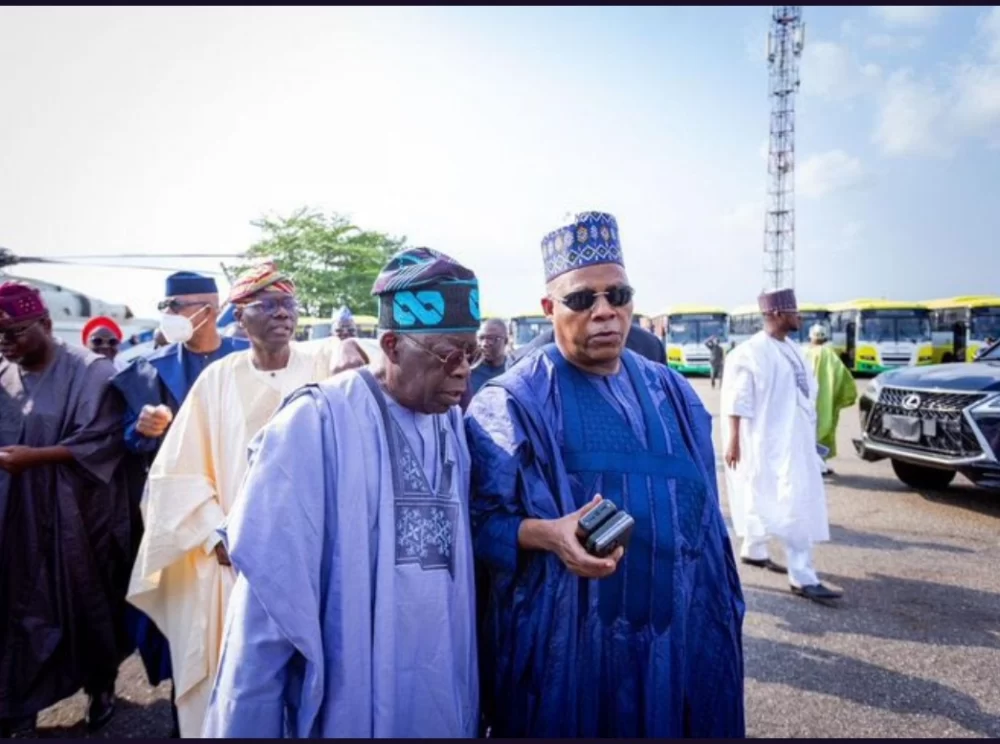

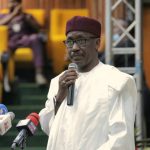





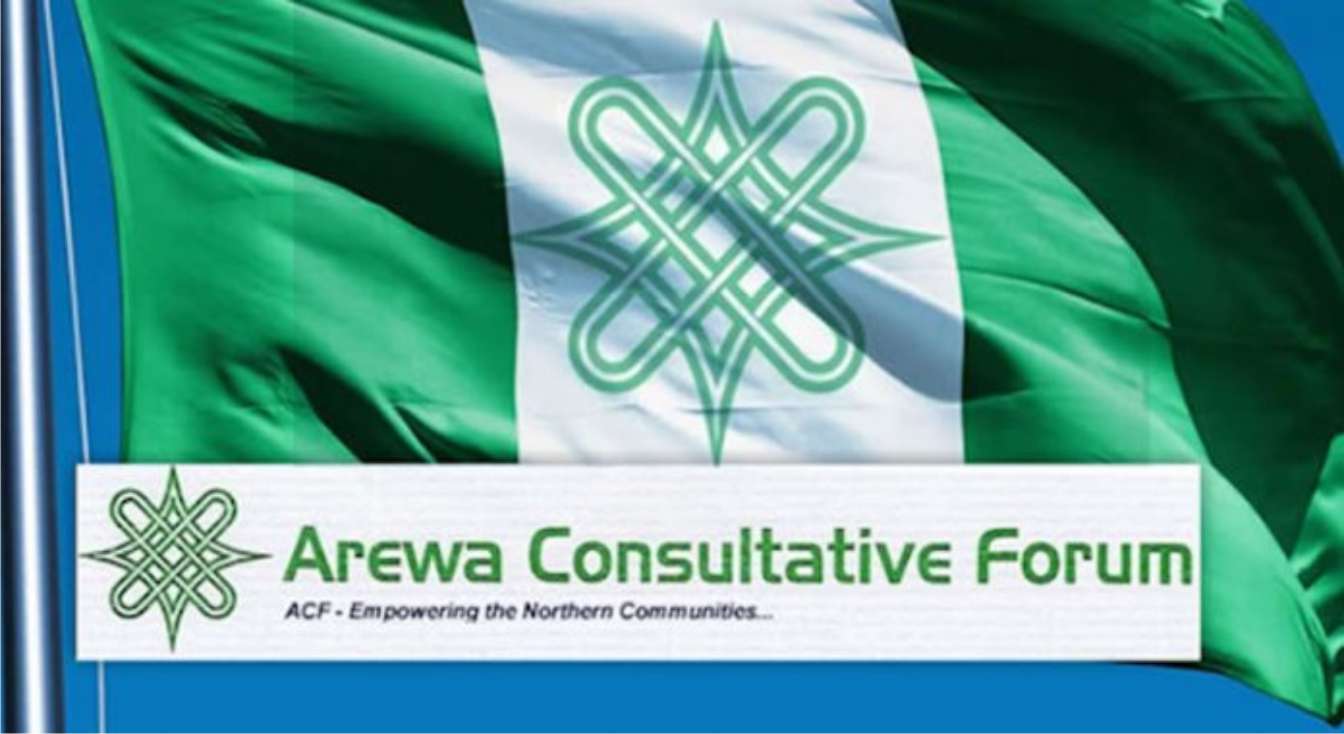
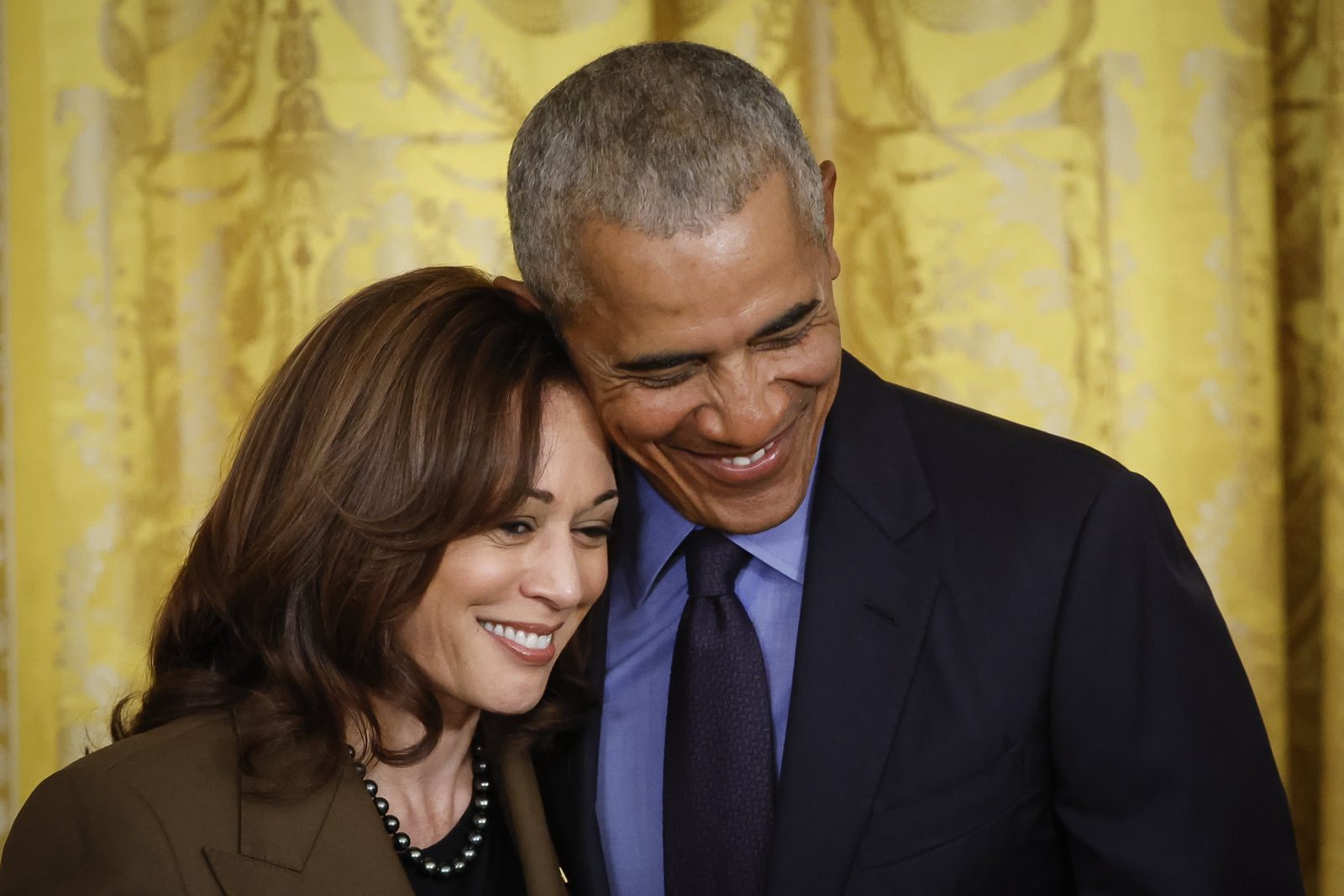


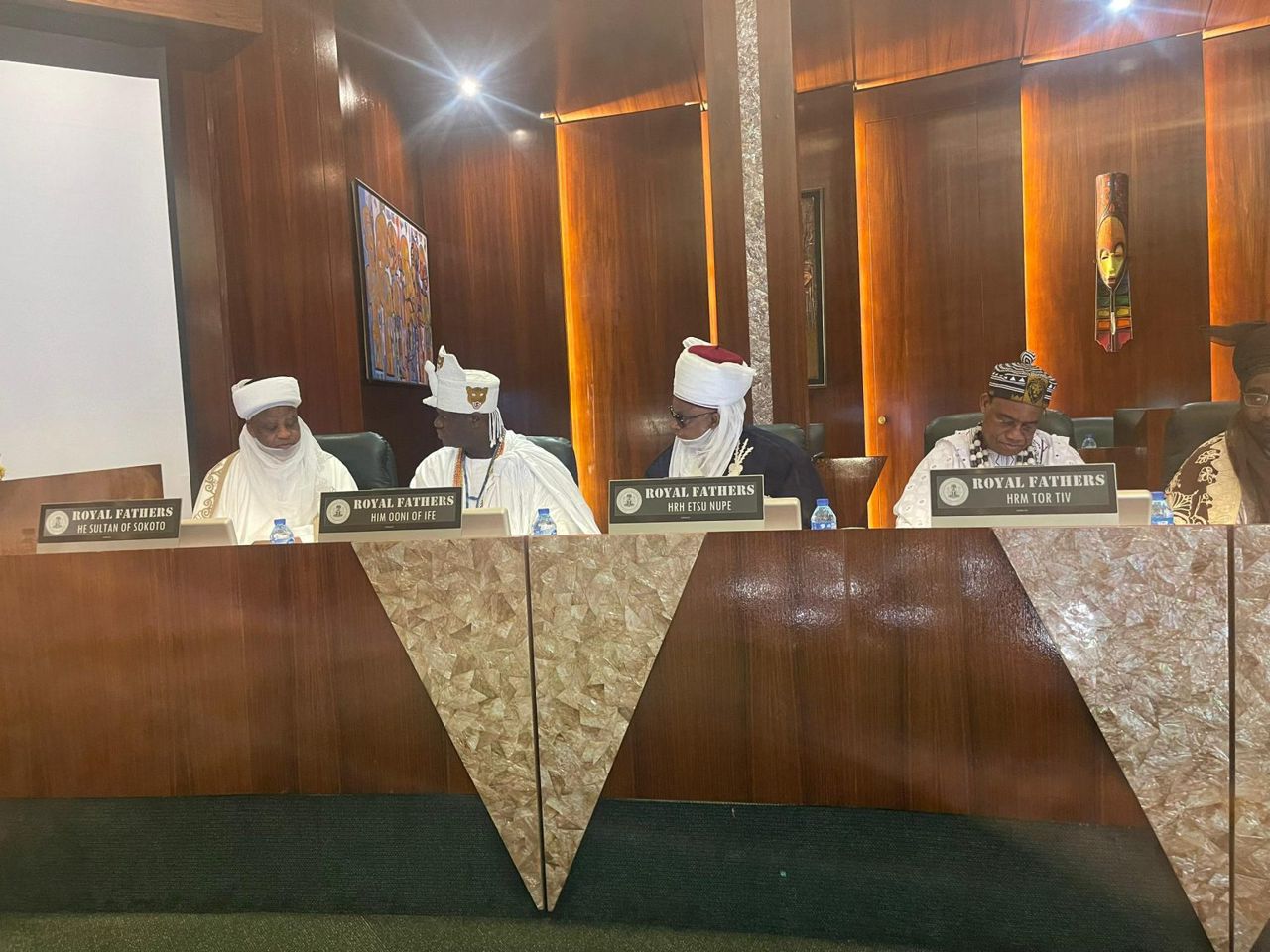



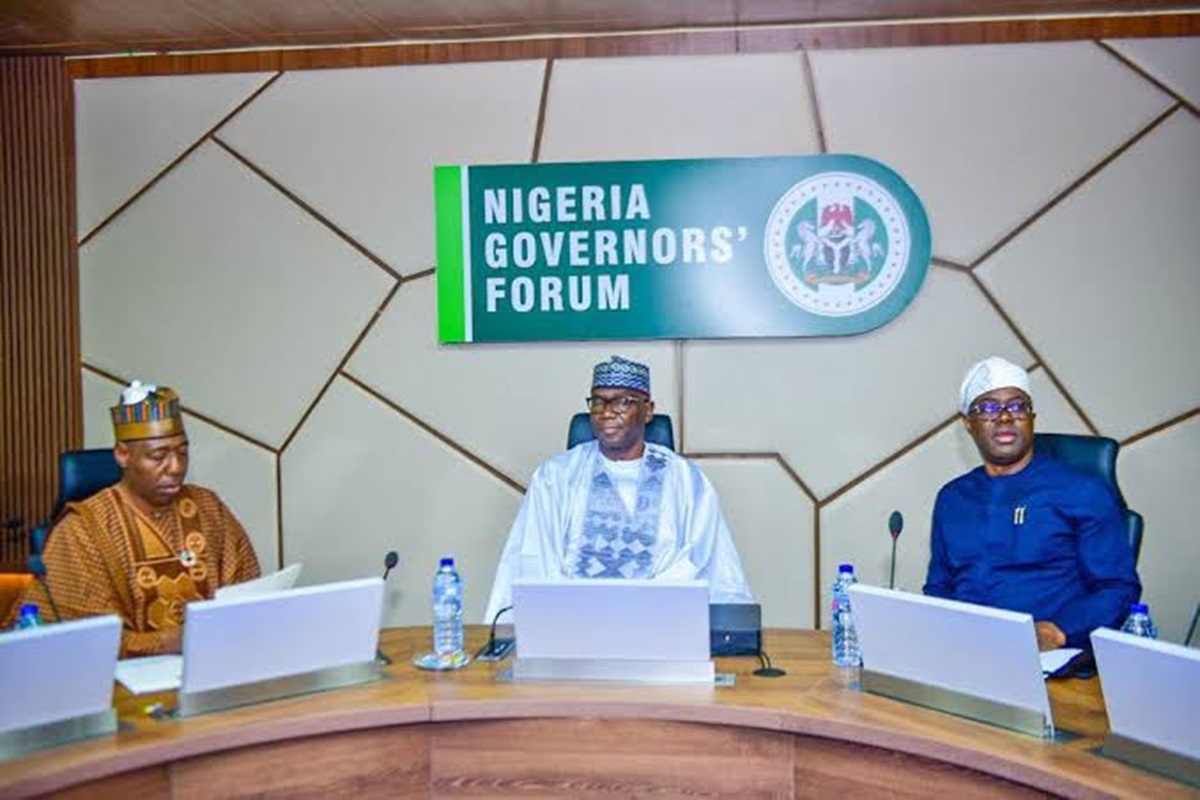
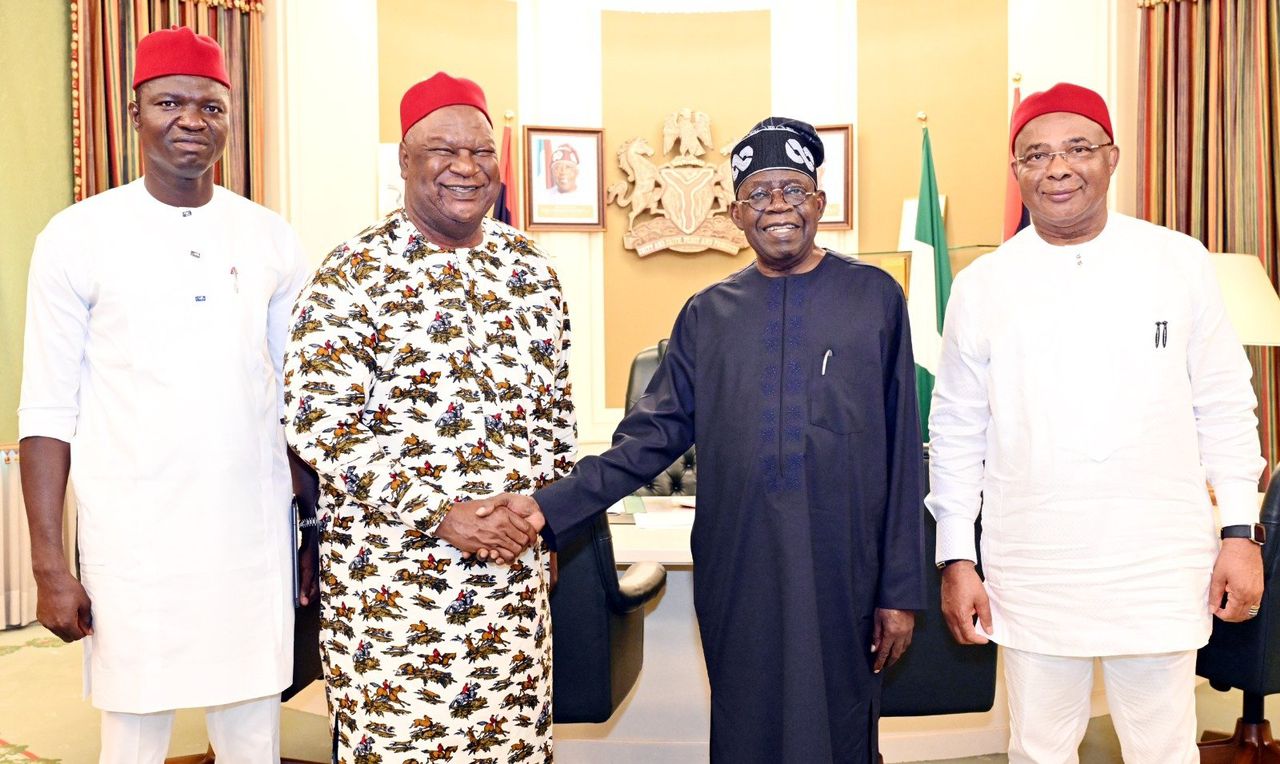

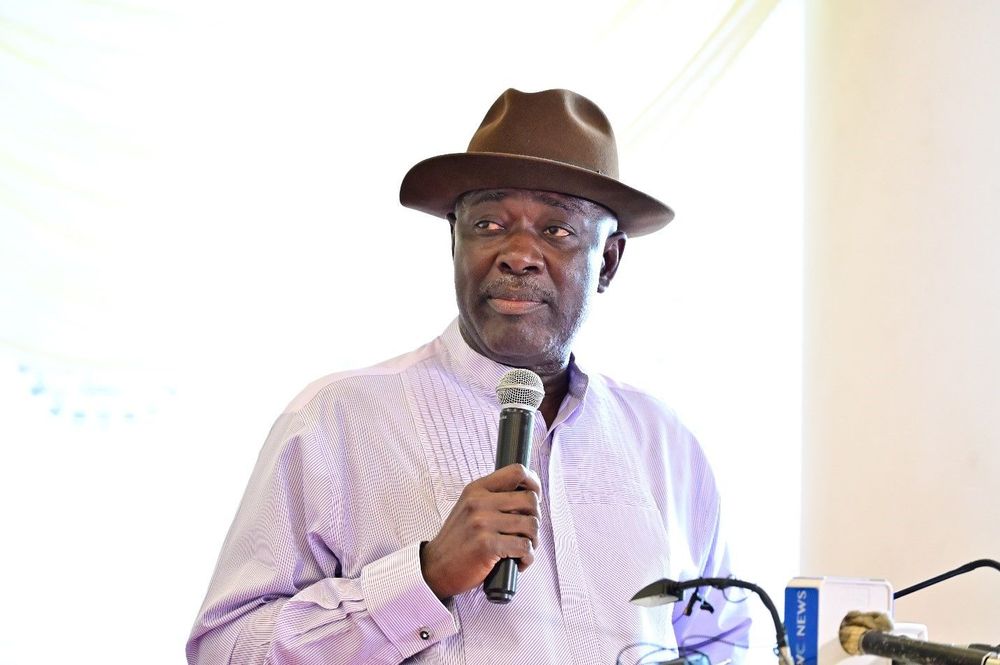


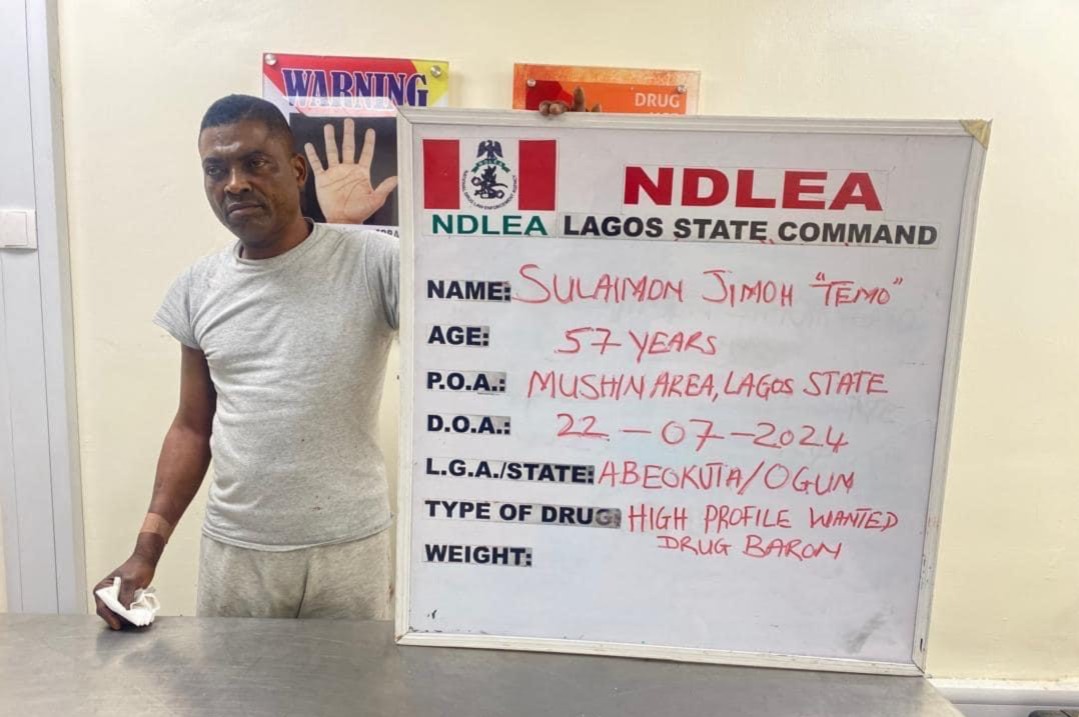

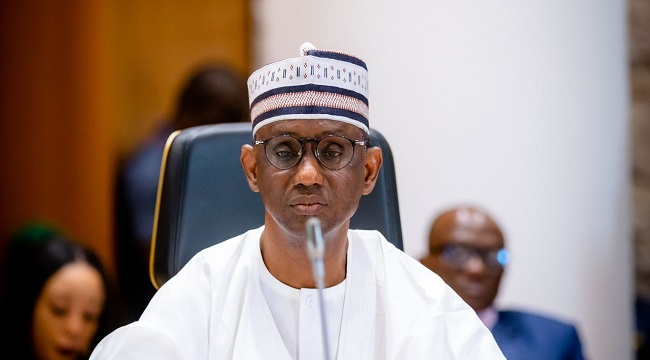
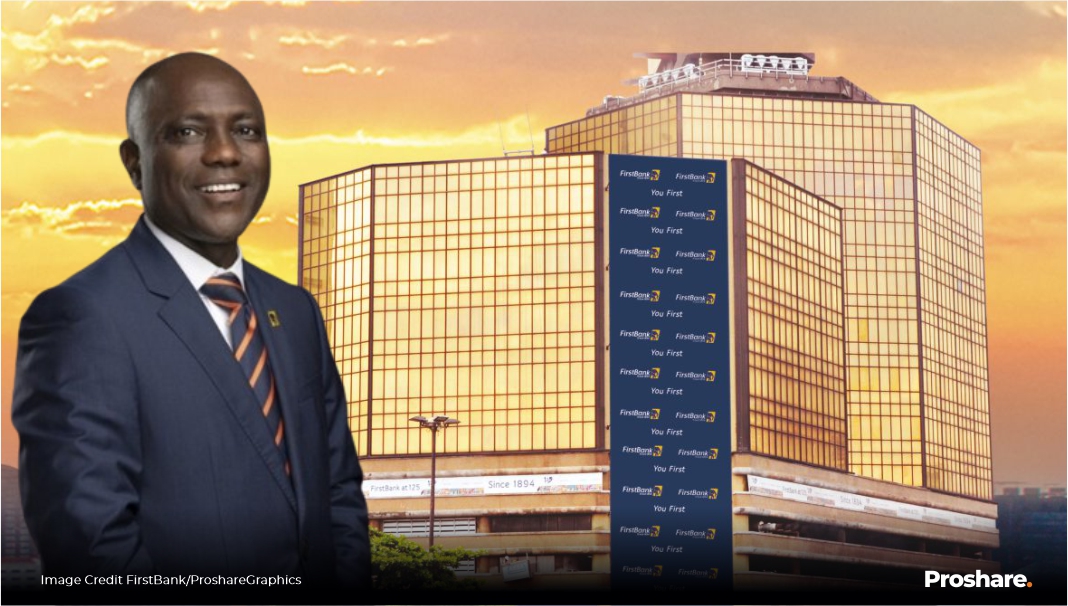
Leave a comment